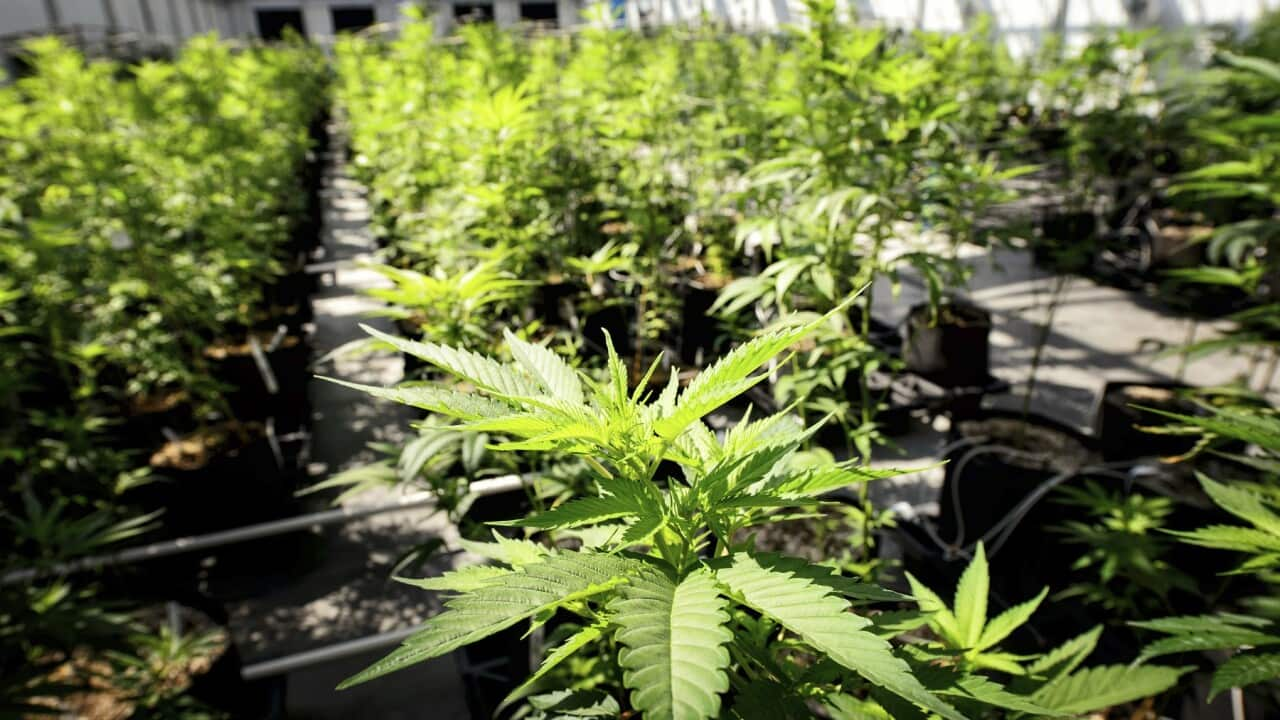O le 'ese'esega i le legalisation ma le decriminalisation o le marijuana, na faamatalaina e Alison Ritter o le Iunivesite o New South Wales.
"So legalisation refers to making currently illegal drugs, legal in the same way as alcohol and tobacco is so you could purchase cannabis or methamphetamine from a shop. There likely to be regulations around age of purchase, and there might be licensing requirements. So legalization refers to the legal supply and use of drugs. decriminalisation, on the other hand, refers to the removal of criminal penalties for the personal use of drugs. So that is if someone is using cannabis, instead of a criminal response, they would receive an education or a health response."
O le legalisation, o le faatagaina lea i lalo o le tulafono - e pei o le sikaleti ma le 'ava malosi - ae o le decriminalisation, o le 'ave'esea lea o faasalaga e pei ona iai nei. I nisi o setete ma teritori, e iai aiaiga e mafai ai e leoleo ona le molia se tagata ae fautuaina lona auai i se polokalame e fesoasoani i sona faafitauli ma le marijuana.
Na faaalia e Alison Ritter o le faafitauli i le tulaga lena, ona o le a tu'u ai i le pule a leoleo pe molia se tagata pe faasino i se polokalame.
E tele le avanoa o le sao mai ai o faiga faailoga tagata ma manatu faapito e mafai ona faia e leoleo i lalo o lea pule poo le aia.
"The trouble is because it's not written into the law, the actual implementation of it doesn't happen so often. And it's left to police discretion to decide who should receive a decriminalised response and who should receive a criminal response. There's some recent evidence from New South Wales that shows that Aboriginal and Torres Strait Islander people are much less likely to receive a police diversion response for drug related offending than a non Aboriginal Torres Strait Islander person. So it's really important that the decriminalisation happens in law, rather than just through police procedures, because that protects the police, actually, from being accused of racialised policing."
Na saunoa le sui o le vaega 'upufai le Legalise Cannabis Victoria, Rachel Payne, o le to'atele o tagata e saisaia ma molia i le umia o le marijuana mo le fa'aaogaina e i latou lava, o tagata fai mai ma tagata muamua.
"And these are for possession only charges. So particularly in Victoria, we know this roughly 10,000 arrests a year. Of those arrests, 92 per cent of those are for possession alone, and they are predominantly impacting people from culturally diverse backgrounds, Indigenous people, and majority of that is Indigenous women and young people. So we just don't want to see people criminalized anymore just for having a joint essentially."
E le o lagolagoina e leoleo le decriminalisation o le marijuana ae ua fautuaina e le Asosi a leoleo i NSW, le Police Association of New South Wales, le ono faatagaina i lalo o le tulafono pe legalise le marijuana.
I se faamatalaga tusitusia na tuuina mai e le Asosi a leoleo i talafou a le SBS, na ta'ua ai:
"In addressing this, our submission to the recent Parliamentary inquiry put forward two recommendations relating to cannabis supply, possession and use; that it be legalized and properly regulated by the Government or remain a criminal offense. If cannabis were to be legalized, it must be regulated similarly to alcohol and managed with several preconditions and the appropriate infrastructure implemented to reduce the risk of harm to front-line workers and members of the community."
Na saunoa Rachel Payne o loo aofia i se folasaga a lana vaega 'upufai le le toe avea ma solitulafono o le umia o le marijuana.
O loo fautuaina ai fo'i le tatau ona mafai e se tagata ona toto sana la'au marijuana ma tufa se vaega o lea la'au i le taimi e selesele ai mo le fa'aaogaina pe ulaina e ana uo ma nisi tagata matutua.
"We've introduced a bill to the Victorian Parliament and New South Wales from Western Australia have also mirrored this bill, which is looking at the first stage of regulation of cannabis. So that would be for removing the criminalisation or you know, as some people would refer to it as decriminalization. And what that means is that it's no longer a criminal offence to possess cannabis, we're also encouraging that people are able to grow a small amount of cannabis for personal use, and be able to give that cannabis to other people, other adults."
E pei ona saunoa Alison Ritter o le UNSW, e le faaitiitia pe faateteleina ai le fa'aaogaina e tagata o le marijuana ona o tulafono.
Pau le tulaga o loo alia'e mai ai o le tele o le taimi o le faamasinoga e alu i moliaga o tagata e umia le marijuana mo le fa'aaogaina e i latou lava.
"So decriminalisation doesn't reduce drug use, it doesn't increase drug use, more importantly, which is what most people worry about... And it's incredibly costly to process these kinds of very minor abuse offenses through the criminal justice system. A significant amount of money could be saved if people were redirected towards education and possibly treatment."
(Ripoti na faamaopoopoina e Hannah Kwon mo le SBS News, tapenaina e Ioane Tiperio Lafoa'i mo faasalalauga i le SBS Samoan).
Share

